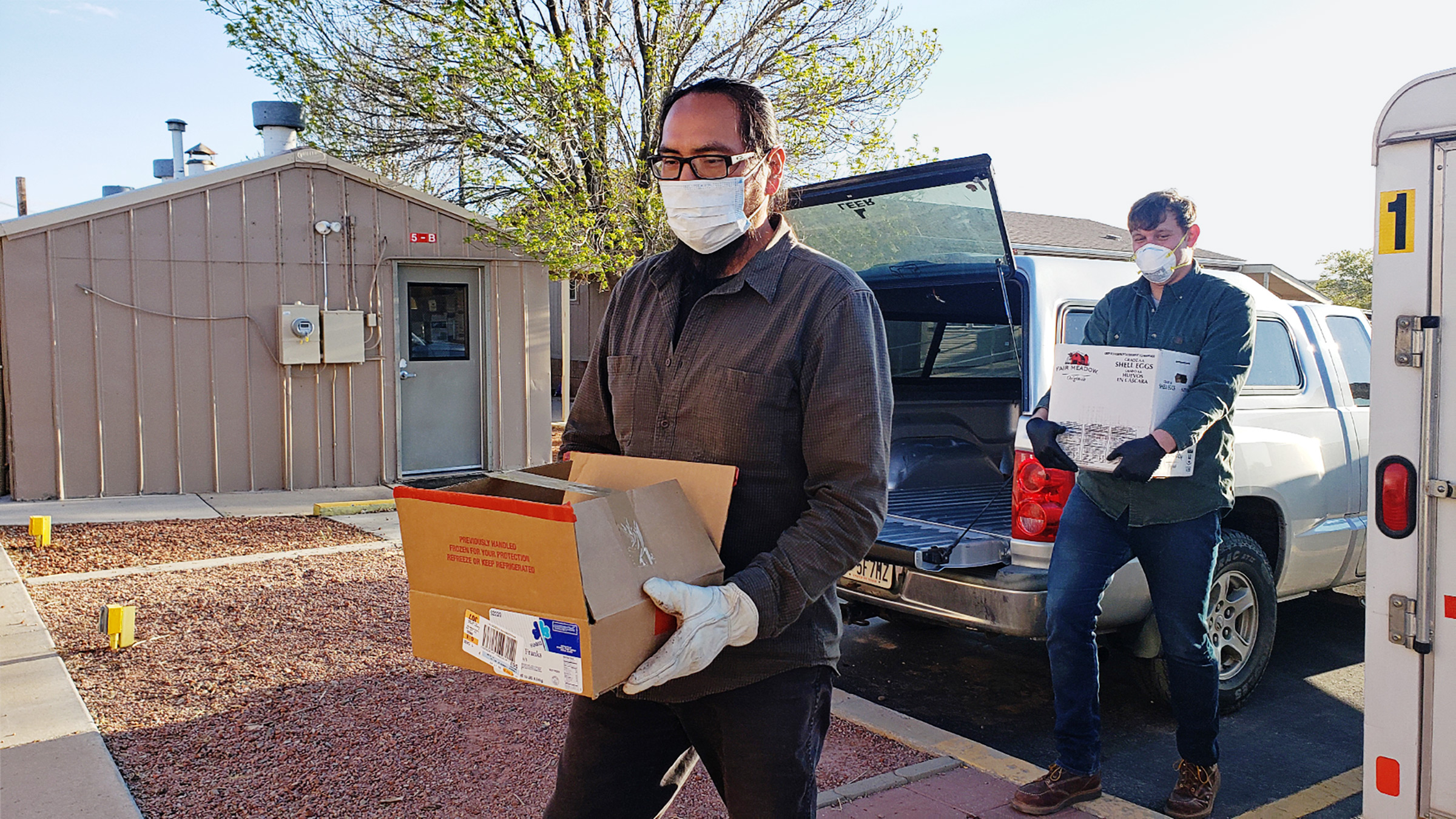
When the Utah Navajo Health System first came together, with administrators and the board members watching this virus, there was just something that kind of spoke inside all of us, saying, “This is going to come here.” The Navajo Nation already has high factors of diabetes, lung disease, heart disease, a lot of the health risks. And we knew if this comes here, it’s going to devastate the Navajo Nation, and that’s what it did.
At the end of February, I started the relief program, down here on the Navajo reservation in Montezuma Creek, Utah. Before this, I was the health system’s media guy. I have a band and did some work on Yellowstone, the TV show, but I’m from this community; I grew up here. There were a lot of programs at the clinic that a lot of community members didn’t know about, and they wanted me to help get the word out. So once I did that, the community kind of saw me as a liaison.
On the reservation, a lot of homes don’t have running water or electricity. So our focus when we started was to help people who are living in superrural areas. We have a drive-up service where people can come to pick up food, but we also have a home-delivery system. Where we live right now has become the hot spot on the Navajo Nation, so we go to a lot of homes that are quarantined. We get names from other local health districts or the behavioral-health programs. They know about the elderly people who live deep in the canyons and have nobody, or if they’re taking care of a disabled child. It’s still cold here at night, so we deliver firewood. We haul water for livestock and for drinking, and we give out a lot of food packages.
We focus on the Utah part of Navajo Nation, which is huge. The landscapes are different—some are desert terrain, some of it is like Navajo Mountain. There are people who live in places that are so far away from the nearest town, who have lived there for generations. They need help. The clinic gave me a brand-new Toyota Tundra like a month ago with only 100 miles on it. Now it’s at almost 10,000. People talk about grassroots—I mean, this is pure grassroots. We’re trying to work with people locally and help each other out.
Part of what people appreciate is that they see me out there. They see me deliver firewood myself that I chopped. I’m at their house at 10 o’clock at night when they called their case manager or therapist who works with the clinic to say, “We really need some food.”
It’s a tough job. You go to these households where people are sick, and you can’t help them, you can’t touch them. Some of them are old and some of them are little kids, and all you can do is look through the window. You can just see a desperation in their eyes. Sometimes people are just lonely. Especially when they’re so far out, they just want someone to sit and talk for a little bit.
They used to see us as just this clinic. Now people know that we’re more than that. They know that the clinic is there for them, for their well-being. For them to be able to be seen for illness, for mental health, or if they’re hungry or cold. That tightness of the community is what’s really come through.
[Now that Utah is reopening] it feels like everything we’re trying to preach is falling on deaf ears. You can’t stop people from coming onto the reservation. It’s disheartening. I understand why people want to open businesses. But this is a time where there’s something that’s smarter, faster than us: this virus.
All we can do is focus on our part of the country and try our best to keep the virus from spreading. Right now’s a good time for people to really start working together. —As told to Abigail Abrams
This story is part of TIME’s ongoing coverage of the people keeping us safe and our world moving during the pandemic.
This appears in the May 25, 2020 issue of TIME.
More Must-Reads from TIME
- Cybersecurity Experts Are Sounding the Alarm on DOGE
- Meet the 2025 Women of the Year
- The Harsh Truth About Disability Inclusion
- Why Do More Young Adults Have Cancer?
- Colman Domingo Leads With Radical Love
- How to Get Better at Doing Things Alone
- Michelle Zauner Stares Down the Darkness
Contact us at letters@time.com



